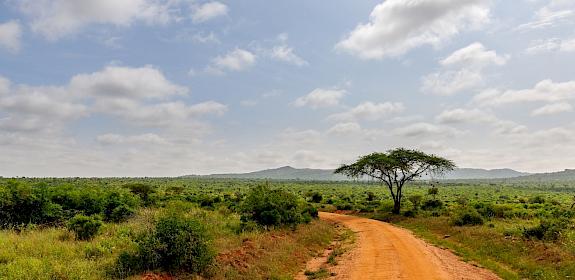Leaders discuss action against illegal wildlife trade at Vietnam tourism hub
Quang Ninh, Vietnam, 17th May 2019 — Government and business leaders from Quang Ninh met today to learn how they could best combat illegal wildlife trade and how doing so could benefit the development of the province.
TRAFFIC hosted the meeting, which brought together leaders of the Provincial People’s Committee, representatives of business associations, and members of the Vietnam Chamber of Commerce and Industry (VCCI). Attendees gained insight into the state of wildlife trafficking in Quang Ninh and learned about measures they could take to discourage illegal trade and boost local businesses in the process.
“Quang Ninh has experienced a great deal of growth over the past several years and a by-product of this attention, unfortunately, has been the growth of illegal wildlife trade in the region. But what we’ve heard today from the stakeholders gathered here is that people are willing to stand up against this practice and in doing so, contribute to the sustainable socio-economic development of the region,” said Mr. Pham Ngoc Chinh, Senior Lecturer at VCCI’s Lecturer Club for Start-ups and Enhancing Business Competitiveness.
The event featured presentations on how and where the illegal wildlife trade was taking place within the northern province, which borders China and is home to tourist hotspot Ha Long Bay. The area has been flagged by TRAFFIC as having an active illegal wildlife market, catering to both Vietnamese and Chinese tourists.
The event featured a presentation from VCCI’s Small and Medium-sized Enterprises Development Centre Vice Director Le Thi Thu Thuy on how adopting anti-wildlife trafficking measures into businesses’ codes of conduct or Corporate Social Responsibility programmes can make them stand apart from the competition and attract more clients. Ms. Le recounted case studies wherein businesses had experienced financial growth on the back of efforts to champion good causes.
“There is tremendous potential for businesses that want to embrace environmental initiatives. Not only do they get the satisfaction of contributing to something meaningful, but they are also rewarded tangibly by a growing number of consumers that are concerned about the values of the companies they associate with,” said Ms. Le.
TRAFFIC empowered meeting participants to promote new social norms against wildlife trafficking by offering instruction on how to hold behaviour change communications activities of their own. In doing so, provincial authorities and business owners can take ownership of the anti-trafficking message and inspire change amongst others in the province. The end goal of these efforts is to make Quang Ninh an illegal wildlife free province, a title that would help to boost tourism amongst conscientious travelers.
The event culminated in the signing of a Memorandum of Understanding between TRAFFIC and the Quang Ninh business association, which will serve as a foundation for co-operation between the two entities, with TRAFFIC providing support for businesses wanting to adopt anti-trafficking policies.
The event was supported by the Wildlife Trafficking, Response, Assessment and Priority Setting (Wildlife TRAPS) Project, a partnership with USAID.
About Wildlife TRAPS
The Wildlife TRAPS Project, implemented by TRAFFIC and IUCN with funding support from USAID, is helping to forge cross-sectoral partnerships with government and experts in inter-governmental organisations, NGOs, academia, and the private sector to identify risk mitigation strategies to prevent future zoonotic spillover potential associated with trade in wild animals.
As well as social and behavioural change interventions, the Wildlife TRAPS project is supporting policy and regulatory reform efforts, including strengthening supply chain management systems. The identification of critical control points within wildlife trade supply chains will help target illicit and other high-risk wildlife trade practices that may facilitate the transmission of zoonotic diseases.
About TRAFFIC

TRAFFIC is a leading non-governmental organisation working to ensure that trade in wild species is legal and sustainable, for the benefit of the planet and people.





